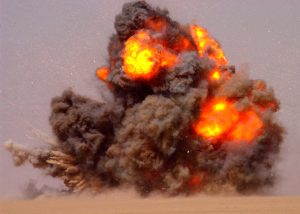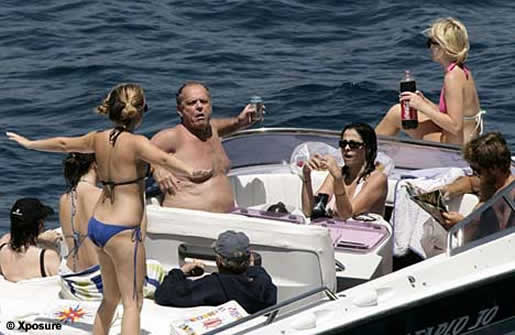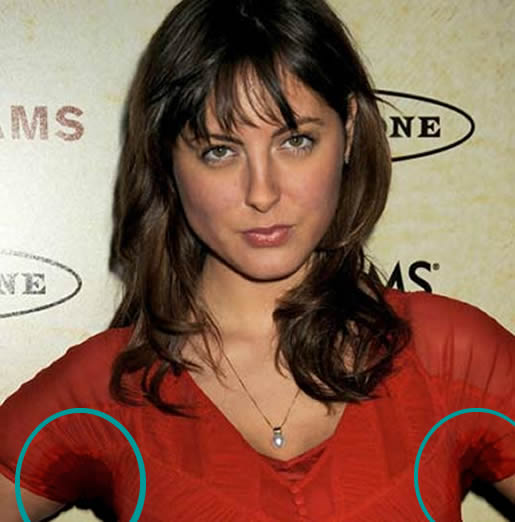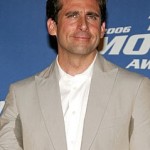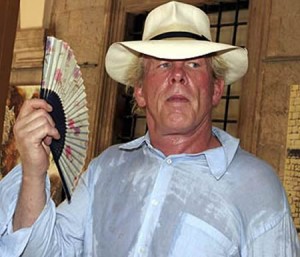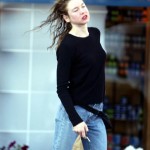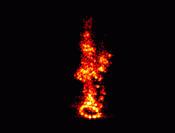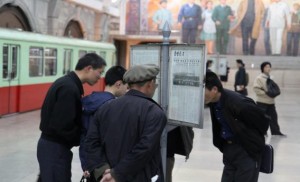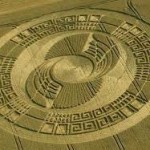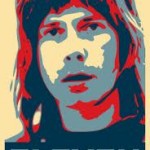My brother Mike shook me awake to tell me Dad wasn’t back yet. I looked at the clock. Almost 1 am. The house was shaking in a colossal wind that had not been there when we went to bed. The roller shades were sighing out and back from the leaky, noisy windows. Everyone else in the house was asleep.
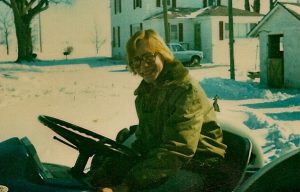
This is Dan, a year after the attempted rescue, sitting on our new tractor. Behind him are the house and milk shed.
I put on jeans and a heavy shirt, pulled on thick socks, and we moved quietly down the tall, narrow stairway to the kitchen. Mike turned on the light, and we cupped our eyes against the windows to look outside. There was nothing to see. The bright yard light was filtered into blue-white milkiness by the heavy blowing snow. The best it could offer was a filmy glow. We couldn’t see the drive, the pole barn or even the enormous oak standing 20 feet from the house.
The last time we’d seen Dad he was driving to Symerton, a nearby flyspeck with a granary and a bar. Then, it was brilliantly sunny and calm. A February snowstorm, two days before my fourteenth birthday, had just passed through, leaving 12 new inches of snow on top of the preceding two feet. A county grader had come through earlier in the day to plough the gravel road and, as a courtesy, our drive.
Our stalwart tractor, a 1951, red and gray Ford 8N, was 23 years old at that point. About the size of the 1970 Chevy Nova one of my friends owned, it was still too small to push a blade through that much snow.
The temperature had been dropping as my dad drove off in our new, cream-colored 1974 Chevy Suburban. I myself had driven it through heavy drifts snaking across Interstate 55 near our farm in northeast Illinois, feeling the sudden, pillowy deceleration as the tires split through each bar. I wasn’t worried about Dad getting stuck as long as he stayed on plowed roads. That’s not at all what concerned me.
Dad said he was going to get milk, something that was sold in the tavern. With five school-aged boys — me and my younger brothers Mike, Dan, Terry and Tommy — in the house, we went through it fast. My mom was fighting breast cancer in a Chicago hospital at the time, and my older sister Kim was living with a foster family in a suburb. My dad never drank milk or even much water unless you were talking about his morning coffee. It was Stroh’s beer the rest of the day, including at lunch while he worked as a journeyman union electrician in and around Chicago.
He was six feet tall and had the body of someone who’d worked since the Navy pulling wire, bending conduit and using hand tools over his head a lot of the day. His ebony-black hair was thin but combable over a face that had been long and angular. Now it was rounder and comically expressive. A master teller of hilarious stories, half of the enjoyment of hearing his stories was watching that face. Squinty suspicion, bug-eyed surprise and everything in between. He was even more impressive expressing anger, disdain and mockery.
My worry was how drunk Dad would get at the Symerton tap. He took every opportunity to go to a bar, or anyplace where he could drink with other drunks. He always had and always would. I resented him leaving because, as the oldest boy, I was on the hook for feeding and managing my brothers. They didn’t much listen to me, and I didn’t handle the authority well. And anything that went wrong, anything that got broken, any chore or task not done was my fault. Drunk or sober, my dad yelled and screamed and hit and whipped us. Sober was better because he’d eventually get tired or distracted, and tell us to go to our room while he sulked.
Drinking closed those avenues, creating furious circles for his mind to run in. He might tell who ever was the object of his anger that he was like a fart, or bellow about how one of his boys was a worthless asshole, bastard, shit head, idiot or mope. He liked to say, “Green side up, dummy” to us when we did something stupid. It was a reference to a joke he told about an inept black or Polish yard worker installing sod.
“Say, asshole. Get over here.” You heard that and you reported to the kitchen table, a large, round gray Formica-clad piece of furniture seemingly created for our family of eight. A central post and several struts, all squeaky aluminum, supported the top. My dad’s spot was against a wall, with good sight lines all around him. We tried to enter the room so that he was across the table from us. Dad would sit with an unfiltered Pall Mall burning between the stubby, meaty fingers of one hand resting next to a large ashtray, and a can of Stroh’s between his other thumb, index and middle finger.
If he was tired and only kind of angry, you might get off with just a derisive lecture. He might yell and hammer the table hard with a peg-like finger before sending you off with a look of disgust, or he’d just sit there staring at you, with eyes bulging and his upper lip turning white in his grimace. In that case, his fury would rise until you heard the creak of aluminum as he pushed himself up from the table. It was fast.
Dad was a great athlete and very capable of rounding an obstacle before striking. Then he was on you, hitting, yanking and pushing. Sometimes he stopped to make a point by poking his hammer-finger hard into your chest. “Why’d you do that? Are you goofy? Do that again and I’m going to break your ass.”
As often as not, you’d hear his leather belt being pulled from its loops and the tinkling of the buckle as he folded it to whip you forehand and backhand. It wasn’t always easy for him. We’d try to protect our backsides with a free arm, and he’d lose his shit. “Stand still. I didn’t even hit you yet. Move your arm or I swear to Christ I’ll break it. Let me hit you. God damn you.”
Afterward, he’d go back to his cigarette and beer, his lip still incandescent, the belt at the ready on the table. Crying was an invitation to ridicule. “Oh, dry up. Crybaby. That didn’t hurt.” Not crying was to challenge him. “Oh, really? Think you can take me? Take your shot, you punk.” Dad would often stand over you just looking. It was a mystery what he was thinking, but you just endured it. Asking to leave after a beating was to ask for more punishment — you weren’t sufficiently terrorized and humiliated if you still could put a sentence together.
Watching him leave was no great relief. Dad always came back.
I started dinner while I could still see the brake lights of my dad’s truck on Arsenal Road, which led to Symerton. It was hamburgers and mashed potatoes. Done, we started our obligatory argument about who was going to clean the kitchen, which was followed by bickering about what we’d watch on TV. It was a school night or we’d have stayed up until 10 or so — enough time to be in bed before my dad got home, usually. We went up to bed at 8:30.
The house was an old, white wood-frame cube with no exterior ornamentation save for pink-gray asphalt shingles and red shutters. There were storm windows, but the lower sashes hung loose, attached by cords to sash weights within the casings. A lot of heat escaped, so we slept in long johns under layers and layers of covers. When Mike woke me up, the windows were banging back and forth as the wind — surely a blizzard — slammed into them.
We talked in the kitchen about our options for a few minutes and then Dan (two years younger than me and a year younger than Mike), joined us. Not too much later, my two youngest brothers, Terry and Tommy came down wrapped in blankets. The roar of the wind and the commotion of the windows had woken them up.
The first decision was easy. I called the tavern. No answer. Then we agreed I’d call the county sheriff, where someone told me not to worry. The last thing we agreed on without an argument was that we wouldn’t call our Uncle Jack. He lived an hour away, and if we called, he’d come, and that was crazy.
The sheriff called back while we were hashing things out to say that a Suburban had been spotted about a mile away, where our road met a paved highway called Peotone Road. We were told that the officer who spotted it didn’t think he could or should stop right then to check things out, that word had been passed to the state police and the county’s roads department. Someone would be on the scene within an hour or two.
My dad would be dead by then. Mike and I decided we would take the tractor down the road and either pull the truck back (something I was not sure it could do) or load him onto the tractor and bring him home.
Immediately, Dan, who was, after all, the middle child, told us he was going. Terry and Tommy just watched the argument. I pointed out that the tractor had one seat — hardly enough room for two people, much less three.
Mike and I put on every stitch of clothes we could find, including our dressy brown corduroy coats and walked to the door like astronauts leaving for an EVA. In front of the door leading to the rear yard was Dan, also looking like a stuffed starfish. I had no argument left in me, and I realized how easy Mike and I had already gotten off when Terry and Tommy didn’t demand to come along as well.
I opened the door, directly under the yard light, and saw what looked like a frozen hurricane.
We stood stunned for a minute on the stoop, protected from the screaming storm by our house. Apart from the howl of the wind itself, snow hissed like radio static as it scraped around, over and across everything. Our family’s prized century-old oak groaned and writhed and bent like it was retching with its back to the storm. Flapping roof shingles over us hummed like a giant contemplating violence. The TV antenna, 20 feet up on a timber pole, vibrated, adding a Theremin weirdness to the explosion of noise.
What little we could see of the yard was a polarscape; everything was black or dazzling blue-white. Small and large humps hid any evidence that the drive had been plowed just hours ago. An ancient wrought iron two-bottom field plow remained an impassive silhouette, buried to its rusted, peaked hitch works. Alone among the man-made objects, it taunted the storm for more abuse.
We couldn’t see the white aluminum barn, but it was maybe 50 feet from us, a good measure of the conditions we were facing. Mike set off first, I followed him and Dan walked in our footsteps.
My exposed eyes and cheeks stung in the dry and cold wind, but I don’t recall feeling particularly cold. The overwhelming sensation was that of trying to walk under a quickly flowing river. Leaning aggressively into the gusts, which blew across us, from left to right, we nearly fell as we passed the small milk shed, which abruptly blocked the bullying. Next to the white cinder-block shed stood our large gas tank, perched on four-foot-tall angle-iron struts.
We were halfway to the barn before we could see it. It was 60 feet long and 25 feet tall, all white except for dark red edging. A large sliding door faced us, and beside it was a conventional swinging entry door. We moved as fast as we could toward that door.
Once inside, we turned on the lights to see long fingers of fine snow stabbing in from gaps between the windward wall and the ground. After fighting the gale outside, the barn felt alien in its comparative stillness. Tools and gear were strewn about, as was normal. One whole corner of the building, up to the roof, held green-gray hay bales, fragrant even in the cold.
Daisy, our forlorn pony stood in her stall, which needed shoveling. Mike had walked her from her corral to the barn two days ago, before the weather got ugly. She had withstood any number of snowstorms and thunderstorms, standing with her tail into the wind, her head lowered, Eeyore-like, until the trouble passed. Daisy wouldn’t have survived this blizzard, though. We would later learn that the windstorm had claimed the lives of five calves in the area. It was Mike who most often took care of Daisy. He picked up a small ax to break the ice covering her water tub.
The tractor sat with its large rear tires close to the barn’s third entrance, a tall garage-style door. It came in after Daisy. When you think of a tractor, the famed 8N does not automatically come to mind. Were it much smaller it would be a big lawn tractor. That’s not to say it had no power. It had plenty of guts. It pulled the two-bottom plow outside and other implements with relative ease. It was, in fact, the perfect size for our five-acre vegetable farm.
Its modestly dented nose and grill were creamy gray and embossed with Ford’s cursive logo. The iron chassis was painted fire-engine red, giving the model its nickname, Red Belly. To this day, the 8N can be spotted in rural areas, and every one that I’ve ever seen still has this paint scheme. They run so reliably, it’s possible that no one wants to tempt fate by making a single change.
There’s no protective (some would say coddling) cab on the 8N, and every feature you need to access or operate with the exceptions of the oil dipstick and fill are within reach as you sit in the unforgiving, vaguely ass-shaped steel seat. A hatch on top of the nose, right in front of the steering wheel, hides the gas tank cap. The throttle is between the gray nose cowl and wheel. The gearshift is between your knees, and your feet rest on running boards on each side of the red transmission. A strap-shaped iron pedal on the left engages the clutch. On the other side, two facing pedals operate each of the rear wheel brakes individually unless you step on both at once.
We had an iron draw bar attached to four lift arms that stood out from the rear of the tractor like greater-than signs (when viewed from the tractor’s left side). Implements were hooked onto the draw bar and pulled by the tractor. Mike and Dan would be standing on the draw bar, holding onto the large shell-like gray rear fenders.
I got up in the seat, turned the key, and it started right up. My forest-green Ford Gran Torino wouldn’t cough on a night like that. Dan pushed the garage door up, Mike got on behind me and I thought, we can do this.
Being on the lee side of the barn, the area immediately surrounding the door was almost free of snow, though the gravel was frozen into something like a single pebble-surfaced rock. We backed out, wheeled around and started toward the road. The drifts were two and three feet high and just as broad. Guessing where the drive was, I drove slowly in first gear past the kitchen windows. Terry and Tommy sat watching us, wrapped in blankets.
Turning right onto the road and directly into the blizzard, the house blocked our yard light, and we were shocked again. Staring forward, it was hard to see much more than 10 feet, but looking up, we saw that the sky was clear and hard in the freezing atmosphere. A less-than-full moon and fierce stars shone down. Standing on a household ladder would have gotten my face above the blowing snow, which probably had been picked up in the next county over.
The going was slow, and worse was yet to come. Our farm sat on an easy rise, which meant that bigger drifts would be piling up farther down the road like waves cresting in front of a beach.
I drove on, feeling the drifts begin to jerk the tractor’s smaller front wheels left and right. Before I could really think about that, though, the engine bucked and died.
This had never happened before, and I panicked. We weren’t going to save Dad, and the tractor would be blocking the road when the county came around to clear the roads. There would be no way around it. And I was acutely aware that the farmers we knew would know that I stalled the tractor in the center of the road in the middle of a blizzard. I admit that the order of these thoughts were different at that moment.
I opened the hatch and twisted off the gas cap. The moon was almost overhead and with it I could tell that the tank was all but dry. I couldn’t believe our good fortune! None of us could. We had hundreds of gallons of gasoline a quarter of a mile back, next to the milk shed. Buttoning things up, we struggled home in the rapidly disappearing tire tracks.
Dan ran in the barn for the gas key and Mike filled a 20-gallon gas can. We didn’t realize it, but the wind had begun dropping and by the time we had walked back to the tractor, the air was clear of snow. It was still very windy, however, which posed the next problem. We hadn’t brought a funnel.
Dan tried to pour the fuel into the mouth of the tank, but there was a four- or five-inch gap between the nozzle and the tank mouth. Almost all of the gas was being blown away, largely onto Dan. Mike yelled about making a funnel with our hands, and that’s what he and I did.
The pain was excruciating. Not only did we have to take our gloves off, but the gas splashing over our hands stole any warmth they still had. Dan poured as much as he could before we closed the tank, put our gloves back on and restarted the engine. It was Dan’s idea to hold our hands in front of the exhaust pipe, which was low and between the rear wheels. That helped but we had no idea how much gas actually made it into the tank. We had to move on or risk running out of fuel again.
We left the can there because no one could hold the handle, our hands were so cold. However our mission turned out, we could pick it up on our return. In fact, it wasn’t seen again until April when the last of the snow melted.
The drifts grew even larger as we set off again, pushing the front end toward either culvert. We decided to turn the tractor around and drive it in reverse. The bigger tires did better in the deepening snow. Mike sat in the seat looking over his shoulder, Dan stood on a running board and leaned on a rear fender, and I, ridiculously, drove sitting on the nose, steering and adjusting the throttle.
The sweat we three had worked up hauling the gas was further cooling our bodies as we rode into the still-punishing wind. We all shivered visibly.
Not a hundred feet on, I noticed the big tires started slipping occasionally. Looking at the snow under us, I could see that the dense drifts were getting so high that they were lifting the tractor’s chassis. Called “islanding”, it was like driving over a wedge placed between the wheels, which rose and lost traction.
I had lost all sense of time. Had we been outside for a half-hour? An hour? Looking back, the house seemed small and far away. The tracks we’d left closest to our home already had been erased.
It occurred to me that not only might we not save Dad, we ourselves might soon need saving.
We sat for a second. The best idea anyone could come up with was to run back for shovels to shave off the tops of the drifts. For almost a mile, at night in a winter windstorm, and no one who could help us knew we were out here.
Mike called it. We and the tractor were at our limits. Trees ahead were buried several feet up their trunks. Dan was now shaking in his gas-soaked clothes. We were done.
Without turning the tractor around again, we rolled slowly back home.
We sat shivering under blankets on the carpet by the living room baseboard radiator. My hands up to my wrists were numb and my fingers felt like they were throbbing. I felt lightheaded from exhaustion, exposure and defeat. Weirdly, my fingers hurt more as they warmed, reaching agonizing levels.
Meanwhile, Terry filled us in. A state police sergeant called while we were outside saying they’d gotten an officer to Dad’s Suburban, but there was no one in or around it. There were a few houses within a couple hundred yards, and the troopers felt it was likely that the occupants had invited our dad in. There was no plan, however, to have a trooper knock on those doors. Don’t worry, we were told, and get some sleep.
Mike, Dan and I looked at each other incredulously. We’d been out there and knew very well that Dad could have gotten stuck, and being drunk, tried to walk home. His tracks would disappear in a matter of minutes. And Dad would have called if he’d made it to a house.
But there was nothing we could do. We didn’t accept what the police had said, but going back out there was suicide. So we did what were told and went back to bed.
We woke late to a painfully bright, cloudless — and still gusty — morning. Our windows still banged in their sashes a bit, and room temperature in the house was 61 degrees. The road was plowed, but only between our drive and Arsenal Road — in other words, heading away from where we assumed the Suburban was stranded. Dad was not in his bed.
Without a word, everyone ate oatmeal. At about 9, our Uncle Jack came crashing up our drive in his beat-up, brick-red pickup. Riding with him was Dad. They came in laughing and slapping each other’s backs.
My dad didn’t waste time telling us what happened. Instead he immediately issued orders. I had to go in the barn and get some tools: a short sledge hammer; the BernsOmatic propane blowtorch, with extra tanks; a heavy cloth tarp; lock deicer; the long jumper cables; flash lights, with fresh batteries; the big combination-wrench set; flammable starter fluid, to spray down the carburetor to help the engine kick over; and a camp cooler. (The cooler was to keep the beer they would be bringing from freezing.)
Everyone else had to “start cleaning up this shit hole.” When I came back in, Dad and Uncle Jack were drinking beers and laughing at the kitchen table until they wheezed. Eventually, Mike and I were told to suit up, and the four of us left, with the kids in the middle of the pickup’s bench seat.
Illinois farmland generally is parceled out in squares a mile to a side, with asphalt or gravel roads forming the boundaries. We couldn’t drive directly to the truck because it hadn’t been plowed, so we drove clockwise around the square. Mike and I hadn’t said a thing about our night. There was no telling how Dad would react.
The landscape around us, however, was enough to strike us dumb. There was nothing but rolling drifts set off by their blue shadows. A few trees along the road and a stream stood in perfect relief. The few houses we saw looked like odd boats sailing frozen seas.
“Is that gasoline?” my dad asked, sniffing. “Where’s the gas?”
Uncle Jack shrugged, and then Dad looked down at me. It was Mike’s and my hands. The skin on mine still burned and showed bright red. I burrowed them between my thighs. Dad’s brow dropped and his upper lip lit up a little. The message was clear. He knew I’d been doing something I shouldn’t, something involving gas. He was going to break my ass when we got the truck home.
My dad never told us very much about what happened. He maintained that he’d left for milk, got the milk and started back only to find Arsenal Road impassable. Turning around and driving to Peotone Road, which ran parallel to Arsenal, he was forced to stop almost immediately, just after the intersection of Peotone and our road. That’s pretty much the story I got.
A commercial farmer we knew well, Danny Phelan, was already parked behind the Suburban. Though a quieter man than either my dad or uncle, Danny was laughing and shaking his head at the scene. He found my dad endlessly amusing, and they remained friends until Dad died many years later.
Swirling wind had carved an almost perfect oblong bowl of snow around our truck. There was no doubt that Dad had hit an enormous drift and was stuck fast. Fierce aerodynamics created curving walls of snow four and five feet high. Orange gravel was frozen underneath the Suburban as solidly as it was outside our barn.
While the adults joked, Mike and I started shouldering the doors to break the ice holding them closed. I got the driver-side door open and stared. It looked like someone had spilled a pizza on the inside on the door. Dad came around right then with Danny and my dad laughed all the more, saying that as he’d sat in the truck trying to figure out what to do, snow piled up behind him, blocking the exhaust pipe. Dad said he was sick with carbon monoxide poisoning. He said he opened the door a crack and vomited.
But the content of the vomit, its direction and the lack of vomit on the ground told me different. We didn’t have pizza at the house. He’d gone to the bar, not a grocery store, ate a pizza and drank too much. At some point, Dad left the bar and, as he said, found Arsenal Road blocked. He drove the other way, but got sick. Unwilling to pull over in the storm, he puked as he drove. The vomit pattern indicated that it had been sucked backwards and out of the Suburban. Had he vomited sitting on our road, with his back to the storm, the wind would have blown the door half off its hinges when he opened it, and the offal would have splattered in the cab.
Over the next several months, I pieced together what happened after that. Based on overheard conversations my dad had and discussions I had with other farm kids, it was obvious that Dad almost died at least three times that night and the next morning.
First, of course, he was hammered as he drove. Second, he could have been stranded farther from any shelter.
As it happens, there was a new, brick ranch-style house right at the corner where Dad had buried the Suburban in snow. He got out of his truck and knocked on the door of that house, but a mixed-race couple lived there, fairly isolated and under a big, bright Peotone Road streetlight. They built that house there because they feared problems with racists. I note here that as far as I know, every farmer we knew had no problem with this couple. My dad, on the other hand, had a big problem, though he would never start anything or try to force them out. From my experience, he was primarily a passive-aggressive bigot.
Regardless, I’m confident that even in that particular storm, no one in that house was going to answer the door in the middle of the night.
Dad struggled to the next house along Peotone, an old wood-frame farmhouse. He must have been getting pretty cold at this point. Again, he knocked but got no response. He stumbled to the next house, a good bit farther away from our road. Even drunk, he had to have figured he was in danger, so when no one answered at the third house, he broke a pane of glass on a rear door, unlocked the door, and walked in, probably half-dead.
My dad later woke on a couch in a stranger’s living room. What really caught his attention, though, was the 12-gauge shotgun inches from his nose. Fittingly (in my opinion), mixed marriage was fine for our neighbors, but breaking and entering was a wholly different matter.
He talked his way out of that situation as he had many other situations of his making. No doubt he sat and had coffee with the farmer and his family, but I don’t know.
At some point, Dad called my uncle, who picked him up and drove him home.
While we waited for the Suburban’s battery to recharge, my dad handed me a window scraper and told me to chip off the vomit. Puke duty was singularly painful. My fingers were hypersensitive to shocks and bangs, and my snowmobile gloves might as well have been my mom’s old evening-out gloves for how warm they kept my hands.
The rest of the truck was as frozen as the vomit. My uncle had to lie underneath the Suburban with the blowtorch to thaw the gearshift, the transmission oil and the crankcase oil, the last two of which had jellied in the storm. We got the engine running after about an hour, and covered the front grill with the tarp had to speed up the thawing process. The adults retreated to Danny’s sedan, laughing and drinking beer.
Mike sat next to me in the cold Suburban while I occasionally revved the engine. I told Mike that Dad wasn’t telling the whole truth. He didn’t say anything for a minute and then we started arguing about it. It was a short argument. We were far too tired, cold and hurting, and it didn’t matter. In Mike’s mind, Dad had gotten stuck in a blizzard and he was OK. All true. It was another story for him to tell hilariously. My closest brother at the time, he always seemed to accept that a kid’s life was hard and subject to whatever whims a nearby adult had in mind. I disagreed.
Two hours after we’d arrived on the scene, Uncle Jack hooked a chain onto the Suburban’s chassis and pulled it back toward Peotone Road, through the wall of stiff, blown snow. Everyone gathered briefly one last time, laughing and congratulating each other. I asked my dad: Where’s the milk?
The men erupted with guffaws. They couldn’t stop, and I know why. Danny and Uncle Jack knew pretty much what had really happened. I hadn’t caught my dad in a lie, exposing him. I hadn’t needled him with the truth. It didn’t matter to them what really happened, and it certainly didn’t matter what I thought.
He didn’t answer me. I drove the Suburban, Mike road in Uncle Jack’s truck with Dad, and Danny left for his farm.
